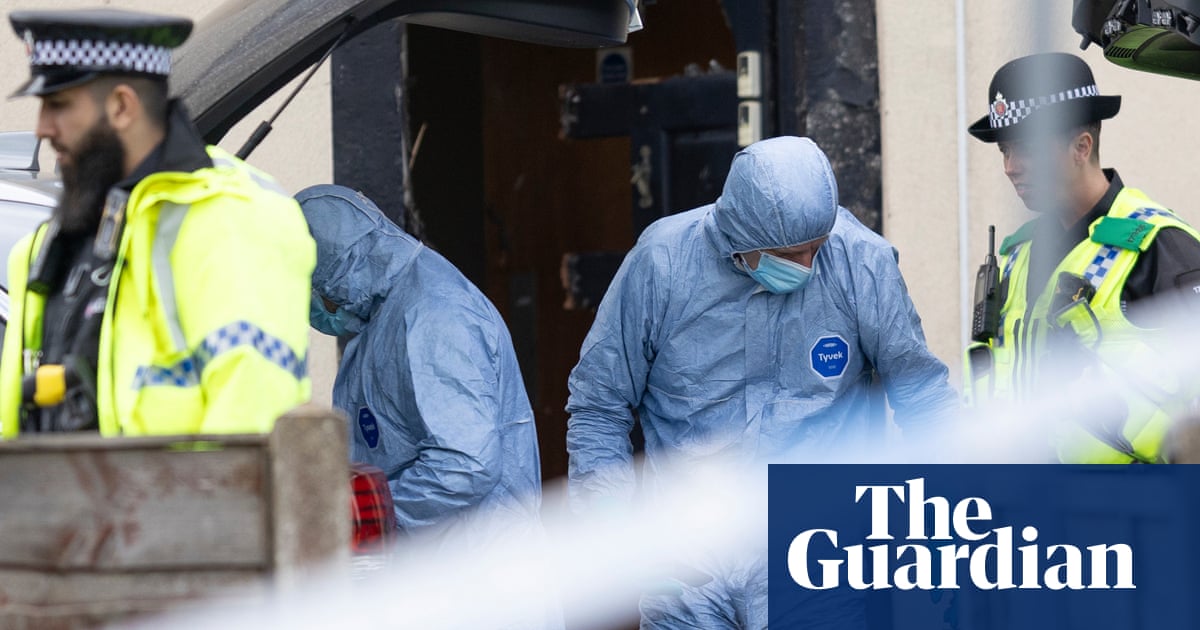Iranian dissidents in the UK have warned that Tehran is growing “more aggressive and dangerous” overseas as it emerged that the Israeli embassy in London was the target of a major alleged terror plot.
Four Iranian men are being questioned by police on suspicion of planning to target what police have only described publicly as a “specific premises”.
However, multiple sources said Israel’s embassy in Kensington, west London, was the building in question. A spokesperson for the embassy declined to comment when contacted on Thursday morning.
The arrests on Saturday followed a police and MI5 operation into what Dan Jarvis, the security minister, described in the Commons as “largest counter-state threats and counter-terrorism actions we have seen in recent times”.
Three other Iranian men are also being questioned on suspicion of being involved in “foreign power threat activity”, in this case understood to be on behalf of Iran.
Iran’s foreign affairs minister, Seyed Abbas Araghchi, said his government denied any suggestion of being involved in targeting the Israeli embassy.
In a post on X on Wednesday night, Araghchi said: “Iran in no uncertain terms categorically rejects any involvement in such actions and confirms that we have not been informed of any allegations via proper diplomatic channels.
“Iran has urged the UK to engage so that we may assist any probe into credible allegations. Timing and lack of engagement suggest that something is amiss.”
The arrests have sparked fear in the Iranian dissident community in the UK, who warned that Tehran is becomingly increasingly emboldened to act on British soil.
Vahid Beheshti, a British-Iranianactivistwho has staged a two-year protest outside the Foreign Office, said law enforcement officers alerted him three weeks ago that he may be a target.
Beheshti said he met counter-terror agents for four hours at a Westminster police station last month where they urged him to increase his security. He said they advised him to buy fire blankets and extinguishers to guard against “a potential fire bomb attack”.
Beheshti said it was the first meeting he had held with officers in about a year and that he was told “the level of threat has been raised”.
He added: “When I asked on whether something has happened, they didn’t respond. But they did say that when it comes close to the fall of the regime, they get more aggressive and dangerous, and that I need to be very careful.”
Ellie Borhan, a British-Iranian who was attacked last year during a protest in London against the Tehran regime, said: “Through manipulation and propaganda, they [the Iranian government] continue to radicalise individuals who may be unaware of the regime’s true nature.
“The British government must take this threat seriously. We cannot afford to reach a point where British citizens feel they must leave the country to feel safe.”
Richard Pater, director of the Britain Israel Communications and Research Centre, described the alleged targeting of the Israeli embassy as “shocking and disturbing but unsurprising”.
The British government has repeatedly faced calls to proscribe Iran’s Islamic Revolutionary Guards Corps as a terror organisation in line with a number of other western nations.
Labour said before last year’s general election that it would ban the shadowy military group from operating in the UK, however it failed to include the promise in its manifesto. Some in the government are said to believe that proscribing the Revolutionary Guards would result in Iran cutting off all diplomatic ties with the UK, depriving ministers of a useful link to Tehran in times of crisis.
A Metropolitan police spokesperson said: “Whilst we do not comment on matters of protective security in relation to any specific individuals, we would encourage anyone with specific or ongoing concerns over their safety to contact police so that officers can assess the situation and offer any safety and security advice as and where necessary. Anyone who feels they may be in immediate danger should call 999.”
